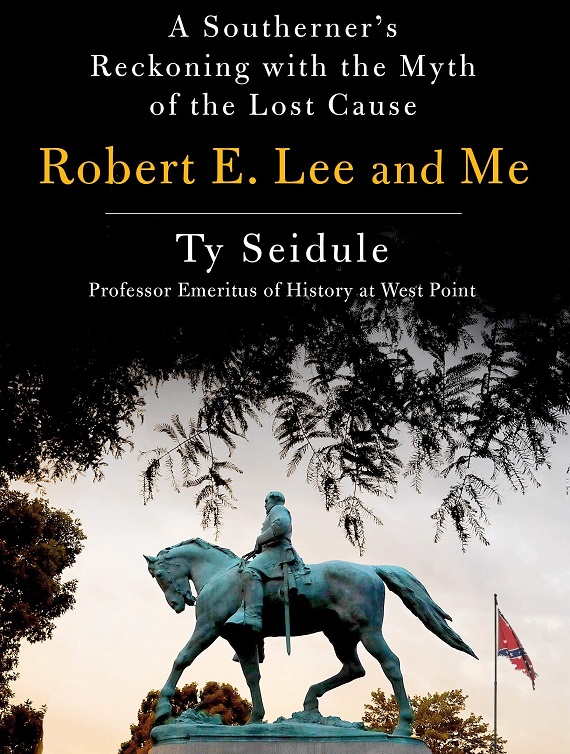Way behind so..........

Robert E. Lee and Me
A review of Robert E. Lee and Me: A Southerner’s Reckoning with the Myth of the Lost Cause (St. Martin’s Press, 2021) by Ty Seidule
A number of good historians have written reviews recently of Ty Seidule’s book, Robert E. Lee and Me, including historian Phil Leigh who produced the video, Robert E. Lee and (Woke General) Please Like Me.[1]
All of these reviews note that the tone of Robert E. Lee and Me
is a desperate plea by Seidule for academia to “please PLEASE like me!”
Academia is Seidule’s new home. He has gone from the United States
Military Academy at West Point, to Hamilton College in Clinton, New
York.[2]
Only A House Divided Within Itself Will Stand
On the Ingraham Angle recently, guest, Craig Shirley offered an opinion that should cheer the people who have read (best seller) The South Was Right. Even those who haven’t read it but understand that the 1776 “founding” drivel of the Eric Foner socialist-mindset historical revision, is just that: drivel.
Shirley, who is the author of five books on Ronald Reagan and who campaigned as a boy for Barry Goldwater, committed seemingly the unforgivable sin of the present political caste. He dared to say that not only should there be a breakaway of the states, but, in fact, it was “what the founders intended.”
Woke Capitalism Guns for the South
Major League Baseball on 2 April announced that both the All Star Game and the draft would no longer be held in Atlanta as retribution for Georgia’s recent election laws. “I have decided that the best way to demonstrate our values as a sport is by relocating this year’s All-Star Game and MLB Draft,” explained MLB Commissioner Rob Manfred. The MLB is not alone in expressing their displeasure with Georgia: chief executives and other high-ranking leaders from more than 100 companies, including Coca-Cola, Delta, Target, Snapchat and Uber, have also declared their opposition to the Peach State’s new legislation.
The Battle of Fort Sumter by DuBose Heyward — Part Two, Conclusion
[Publisher's Note, by Gene Kizer, Jr. : DuBose Heyward is best known for his 1925 novel, Porgy, which eventually became the famous George Gershwin opera, Porgy and Bess.
Heyward wrote Peter Ashley, and Herbert Ravenel Sass wrote Look Back to Glory, and both of those works were adapted for the shorter Fort Sumter, 1861-1865, from which this blog article comes. Citation: DuBose Heyward, Herbert Ravenel Sass, Fort Sumter, 1861-1865 (New York: Farrar & Rinehart, Inc., 1932).
Here is Part Two, the exciting conclusion of The Battle of Fort Sumter by DuBose Heyward!]

